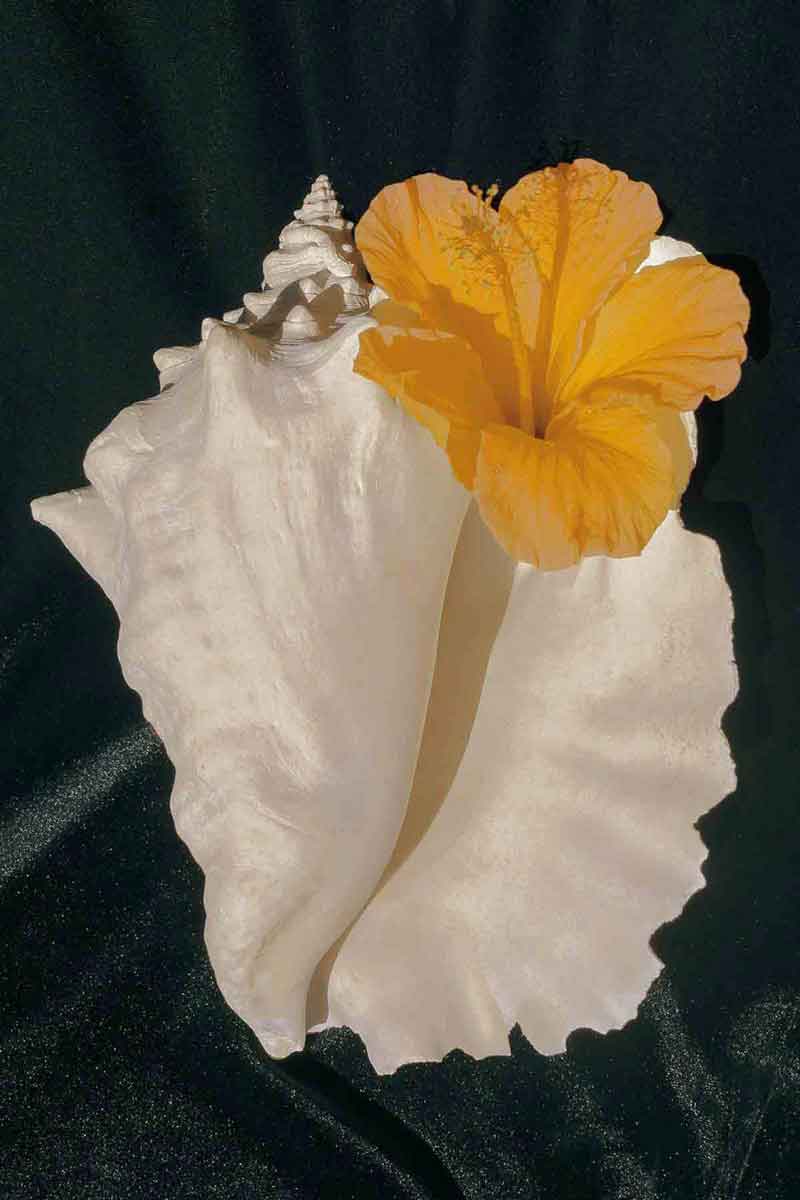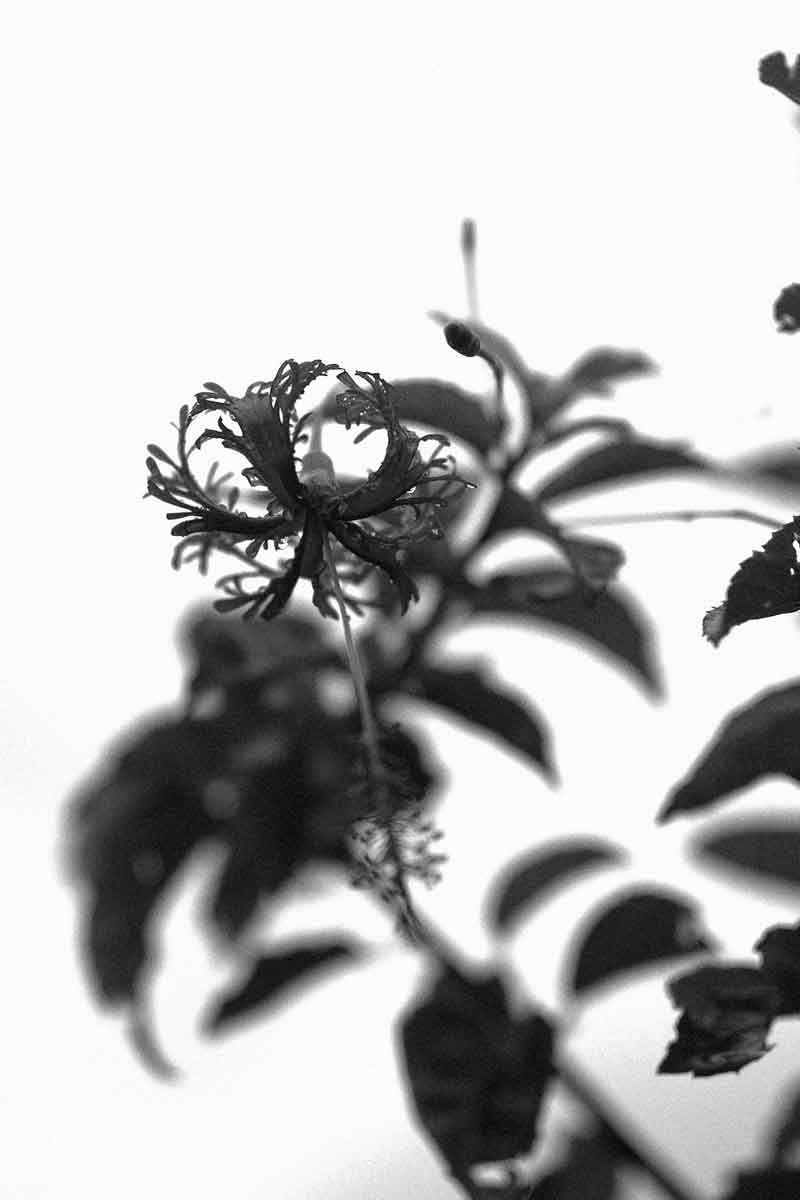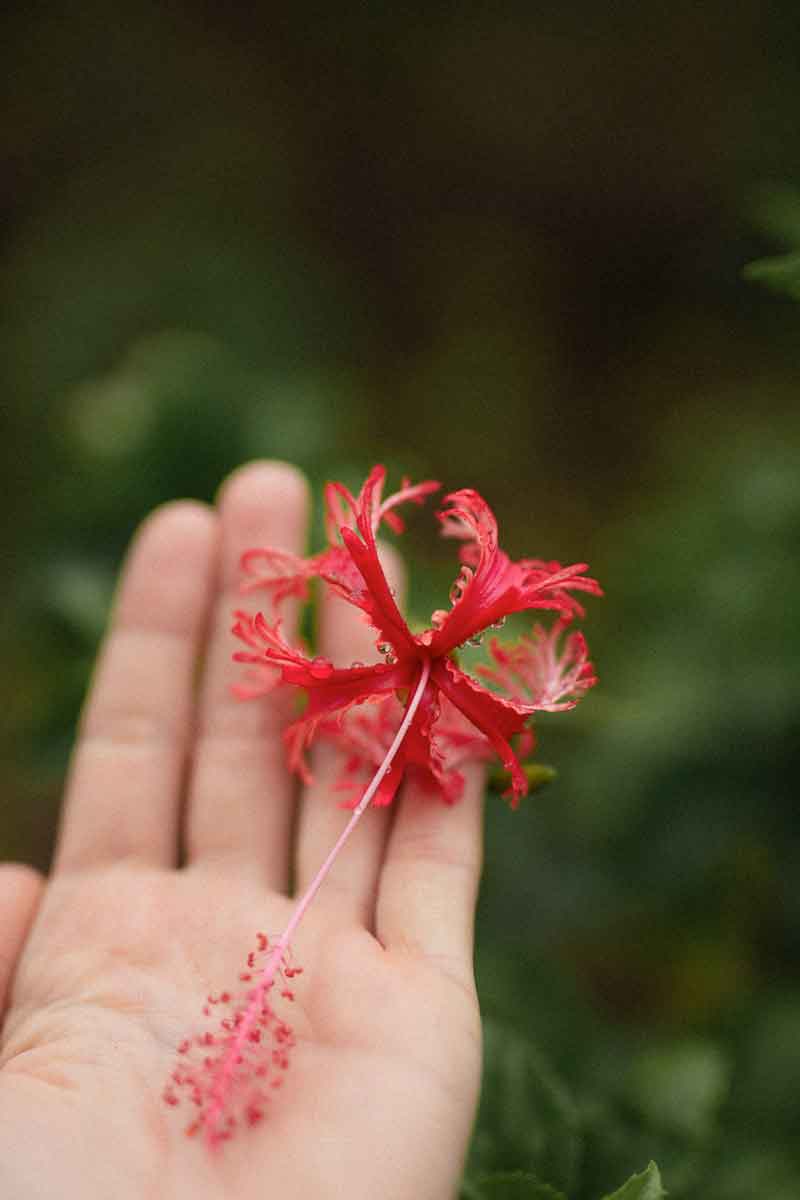IN THIS ARTICLE
- The Science of Aging Skin
- Harnessing the Power of Hibiscus for Youthful Skin
- Embracing Hibiscus in Your Skincare Routine
- Purifying the skin with hibiscus-infused cleansers
- Nourishing and replenishing with hibiscus serums and oils
- Exploring different forms of hibiscus for skincare (extracts, powders, teas)
- FAQs
Time passes, and we age. There is little to do about it, but looking old is something we try to avoid. How to age gracefully and without looking old has been the topic of thousands of investigations leading to thousands of different methods to reduce the signs of aging. Botox is the most common procedure to reduce wrinkles and lines, but more and more people are becoming afraid of Botox and its possible side effects. Thankfully, nature has provided us with a plant that has been labeled as the “Botox plant”: the hibiscus flower. In this article, we will explain the science behind the properties of this flower and how you can reduce the signs of aging while staying away from needles.
Between the thousands of ingredients to diminish aging, hibiscus, also known as the “Botox plant”, stands out as a natural marvel for anti-aging. For centuries, cultures around the world have used this beautiful flower for its potent health and beauty benefits. Packed with a powerful blend of antioxidants, vitamins, and natural acids, hibiscus is becoming a key ingredient in natural skincare products, promising a firm and youthful complexion.



The Science of Aging Skin
How does aging affect our skin?
Aging is a natural process characterized by a natural decline in physiological functions over time. As we age, our skin’s ability to regenerate and repair itself diminishes due to reduced production of collagen and elastin, the proteins responsible for skin elasticity. At the same time, external stressors like UV rays, pollution, and lifestyle choices can accelerate these changes starting a process known as ‘photoaging.’ Researchers have divided the two aging factors into intrinsic and extrinsic aging. Intrinsic aging passes with time, while extrinsic aging depends on you deal with the external stressors mentioned above.
Common signs of aging and their underlying causes
The signs of aging that we know, perhaps too well, are wrinkles, fine lines, loss of firmness, uneven skin tone, dryness, and age spots. These appear when our skin starts to produce less collagen and elastin, we develop a slower cell turnover and a reduced natural oil production. If you add chronic sun exposure and constant harmful free radicals, our collagen and elastin fibers deteriorate faster, forming wrinkles.
The importance of an effective anti-aging skincare routine
The right anti-aging skincare can help slow down skin aging, repair damage, and replenish lost moisture, something your skin cells will thank you for. An effective routine involves treating visible signs and protecting the skin against further damage. Incorporating organic ingredients that boost collagen production, hydrate the skin, and protect against environmental damage can greatly improve your skin’s health. Among these natural ingredients, hibiscus is highly recommended thanks to its multifaceted anti-aging properties and minimal side effects. If you’re looking for an efficient and 100% natural skincare routine, I recommend this Ultimate Anti-Aging Daily Skincare Routine.



Harnessing the Power of Hibiscus for Youthful Skin
Unveiling the chemical composition of hibiscus
Previous pharmacological studies revealed that Hibiscus rosa-sinensis has many positive effects on us. Some of the most notorious ones are:
- antioxidant,
- anti-inflammatory,
- antipyretic,
- analgesic,
- anticonvulsant,
- antidepressant,
- memory enhancement,
- antimicrobial,
- antiparasitic,
- hepatoprotective,
- neuroprotective, and many more.
The “Botox plant” is able to interact synergically with our physiological functions thanks to its unique chemical composition. Its variety of nutrients and bioactive compounds that contribute beneficial effects on the skin (and many other parts of your body) are:
- Vitamin C: Hibiscus is rich in Vitamin C, a potent antioxidant that helps protect the skin from environmental stressors like pollution and UV radiation. It also plays a key role in collagen synthesis, helping maintain skin elasticity and reducing the appearance of wrinkles.
- Anthocyanins: These are a type of flavonoid present in hibiscus, contributing to its deep red color. They have antioxidant and anti-inflammatory properties, helping protect the skin from oxidative stress and inflammation, two significant factors in skin aging.
- Alpha Hydroxy Acids (AHAs): It is called the “Botox plant” because it is a natural source of AHAs, particularly malic acid and citric acid. AHAs help exfoliate the skin, shedding dead skin cells and promoting cell renewal. This results in a smoother, more radiant complexion. These acids can inhibit the production of excess melanin, which leads to dark spots and hyperpigmentation, helping to have an even skin tone.
- Quercetin: Another flavonoid present in hibiscus, quercetin is an antioxidant that helps combat free radical damage. Free radicals are unstable molecules that steal electrons from healthy cells and cause significant skin damage, including premature aging.
- Mucilage: Hibiscus is rich in mucilage, a sticky brownish substance that helps retain moisture. This gives hibiscus natural hydrating properties, helping keep the skin moisturized and supple.
Embracing Hibiscus in Your Skincare Routine
Purifying the skin with hibiscus-infused cleansers
Hibiscus-infused cleansers can provide your skin with a gentle yet effective cleansing experience. The natural AHAs in hibiscus work to break down dead skin cells and unclog pores, leading to fresher and cleaner skin. Plus, the antioxidants in these cleansers help to protect the skin from environmental stressors. This Hibiscus and Rosella Cleansing Oil is, by far, the best hibiscus-infused cleansing oil that we have made. It improves skin texture and tone and aids in the reduction of wrinkles, dark spots, hyperpigmentation, and other signs of aging. This is a 100% organic and non-toxic clarifying oil to milk made with love by Fields of Yarrow.
Nourishing and replenishing with hibiscus serums and oils
Hibiscus serums offer a concentrated dose of the flower’s anti-aging benefits. They penetrate deep into the skin to stimulate collagen production, fight free radicals, and maintain moisture levels, resulting in firmer, smoother skin. Check out our C-COMPLEX DROPS – Revitalizing Serum that is infused with hibiscus and has an optimal 8% concentration of vitamin C for an extra antioxidant kick.
Exploring different forms of hibiscus for skincare (extracts, powders, teas)
Hibiscus for skincare comes in various forms, including extracts, powders, and teas. Extracts can be incorporated directly into skincare products. Powders can be used in DIY masks and scrubs. While typically ingested, Hibiscus tea can also be used topically as a toner or infused into other skincare products. Brands with ethical and sustainable practices, like Fields of Yarrow, have a dedicated part of their website where they explain the main benefits of this extract and suggest products that target specific ailments. If you’re looking to incorporate The Botox Plant into your daily skincare routine, check out their specific page and start looking and feeling younger naturally today.
With its potent antioxidant and hydrating properties, hibiscus can gives you a youthful, firmer, and more radiant complexion. Available in many forms – from infused cleansers and serums to powders and teas – hibiscus provides a natural, effective approach to skincare, allowing us to age gracefully without worrying about unwanted side effects.
FAQs
What are the skincare benefits of hibiscus?
Hibiscus is rich in antioxidants, which help protect the skin from environmental stressors. It also has astringent properties, promotes a youthful complexion, and can help exfoliate and brighten the skin.
Can hibiscus help with acne-prone skin?
Yes, hibiscus has natural antibacterial properties and can help control excess oil production, making it beneficial for acne-prone skin. It also aids in unclogging pores and reducing the appearance of blemishes.
Can hibiscus help even out skin tone?
Yes, hibiscus contains natural acids that can help exfoliate the skin gently, promoting a more even skin tone. It may also help reduce the appearance of hyperpigmentation and dark spots.
Can hibiscus help with scalp health?
Yes, hibiscus can be beneficial for scalp health. It helps balance oil production, soothes the scalp, and promotes healthy hair growth. It is often used in haircare products like shampoos and conditioners.
Can hibiscus be used as a natural exfoliant?
Yes, hibiscus contains natural acids that have gentle exfoliating properties. It can help remove dead skin cells, unclog pores, and promote a smoother complexion.










